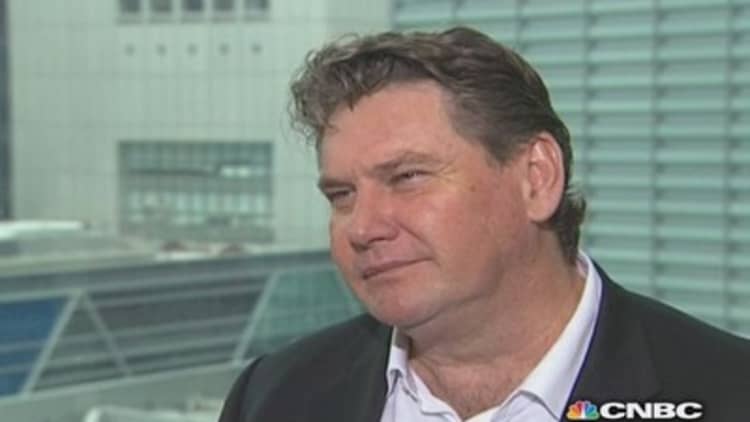
Despite being lesser known in Singapore, the CEO of Australian oil and gas producer Linc Energy told CNBC that the firm does not regret switching its share market listing from Sydney to the smaller Southeast Asian bourse.
"That was a strategic move that has played out successfully," Peter Bond, who is also managing director of Linc Energy, told CNBC's "Managing Asia." "I believe most of that oil and gas [business] will be coming through Asia. Singapore is the better place to be so I just bit the bullet and did it."
Read MoreInvestorsreject BHP deal, hunt for valueelsewhere
The Brisbane-based firm de-listed from the in December. Six months after becoming the largest upstream oil and gas exploration firm on the Singapore Exchange, Bond feels that the move has paid off.
"We've created the stability [that] we wanted. There is a lot less trading and a lot more large buys, like Genting coming in as a large player," the 51-year-old said, referring to Genting Strategic Investments – the investment arm of Kuala Lumpur-listed Genting – which subscribed for 10.75 million shares during Linc Energy's initial public offering last year at $1.20 per share.
Taking over
It was Bond's risk-taking attitude that led him to take over the resources company.
In 2002, Bond became a millionaire after selling his father's trucking business. With money in his pocket, the Australian was set for retirement until Linc Energy, then on the verge of bankruptcy, came by.
"The fact that you can take one cent of coal and turn it into a hundred dollar oil grabbed my imagination. I thought maybe I can do something with this," Bond who previously worked at BHP as a metallurgist recalled. "So one afternoon at a beach in Greece, I wrote up the business plan. It just felt like the right thing to do."
Nine years on, the Singapore-listed firm has a market value of $623 million and owns a global portfolio of oil, gas and coal assets. It has also invested nearly $195 million into underground coal gasification (UCG) technology which Bond is betting will be a boom like U.S. shale gas.
Read MoreAustralia's resource plays: Here are experts'top picks
Hurdles
Bond's ambitions were set back when the UCG, which involves the burning of coal underground to convert it into a gas for power generation, came under fire for causing environmental damage.
In April, Australian authorities charged Linc Energy for contaminating groundwater at its plants in southwest Queensland. Several operations were shuttered but Bond remains confident that the UCG is non-pollutive.
"There's tens of thousands of water samples to prove it is safe. We shut [the plants] down because I can't get any logic from the state government [and also because] we had other opportunities to spend that money," the self-made millionaire said.
With that, Bond ventured out of down under.
Read MoreHousing bubble fearsresurface in Australia
Expanding
Apart from South Africa, the resources firm has a gas trial due to commence in Poland and from there it hopes to get its gas flowing to other parts of Europe including Hungary, Ukraine and Great Britain. Asia is also on the expansion roadmap, with Southeast Asian markets like Vietnam and Indonesia on the list with China, which Bond says could become the company's biggest market.
But just like many foreign businessmen, the Australian realized that doing business in the mainland isn't easy. "It's a very unique location. Obviously, it has a central government philosophy so there are a lot of rules, both cultural and political."
Despite challenges, the driven CEO still aims to turn Linc Energy into a company worth $2 billion in 5 years.
"My style is about turning nothing into something. As people become more educated about UCG, they will realize how cheap we are and our value will soon rise," Bond said.



